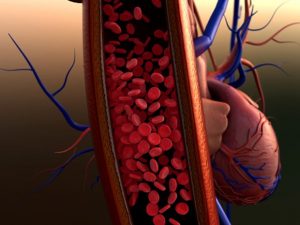
We feel that everyone should know how to prevent poor circulation, as it may lead to poor health outcomes in the long term. Also, our eyesight is something we all take for granted, with glaucoma being a condition we believe should get more coverage. Also, to round off your weekend, we have included articles on the development of crystals in the urine and relapsing polychondritis.
Poor circulation: Common causes, symptoms, and diagnosis tips
The circulatory system is responsible for supplying the entire body with oxygenated blood. It also facilitates the delivery of nutrients, hormones, and even medication to the tissues in need. Poor circulation, however, means decreased blood flow to specific parts of the body, most commonly our extremities, as they are the furthest from the heart.
Poor circulation isn’t a diagnosis in itself, but rather a consequence of other health issues. Treating the underlying cause rather than the symptoms of poor circulation often leads to better health outcomes. Continue reading…
If men want to look professional or formal, wearing a suit and tie is the only option. These items are a staple in every hard-working man’s closet. It often conveys a sense of professionalism and maturity to others and perhaps even promotes a status of wealth. However, according to a recent study, your suit and tie may be working against you. Wearing a necktie may be damaging your eye health, leading to an increased risk of glaucoma.
Glaucoma is a progressive condition. Over time, pressure builds up in the eyes and leads to optic nerve damage. Intraocular pressure—pressure within the eye—damages the cranial nerve responsible for sending the images you see to the brain. When this nerve becomes damaged, it can lead to significant sight impairment or even blindness in just a few years. Continue reading…
Our kidneys’ function is filtering the blood and producing urine that is primarily made up of water and other substances. The chemical composition of urine typically consists of uric acid, carbon, calcium, and nitrogen. And sometimes, crystals in urine can be found. When the normal functioning of the kidneys becomes compromised due to various abnormalities such as dehydration, it can lead to changes that result in excessive crystal formation. Continue reading…
Pupil size linked to depression
Relapsing polychondritis: Causes, symptoms, and how to treat it
Any tissue that contains cartilage is at risk of being affected by this condition. The eyes, blood vessels, and heart have cartilage in them, making them potential sites for inflammation.
Twenty-five to thirty-five percent of people suffering from relapsing polychondritis also suffer from other autoimmune disorders. Continue reading…